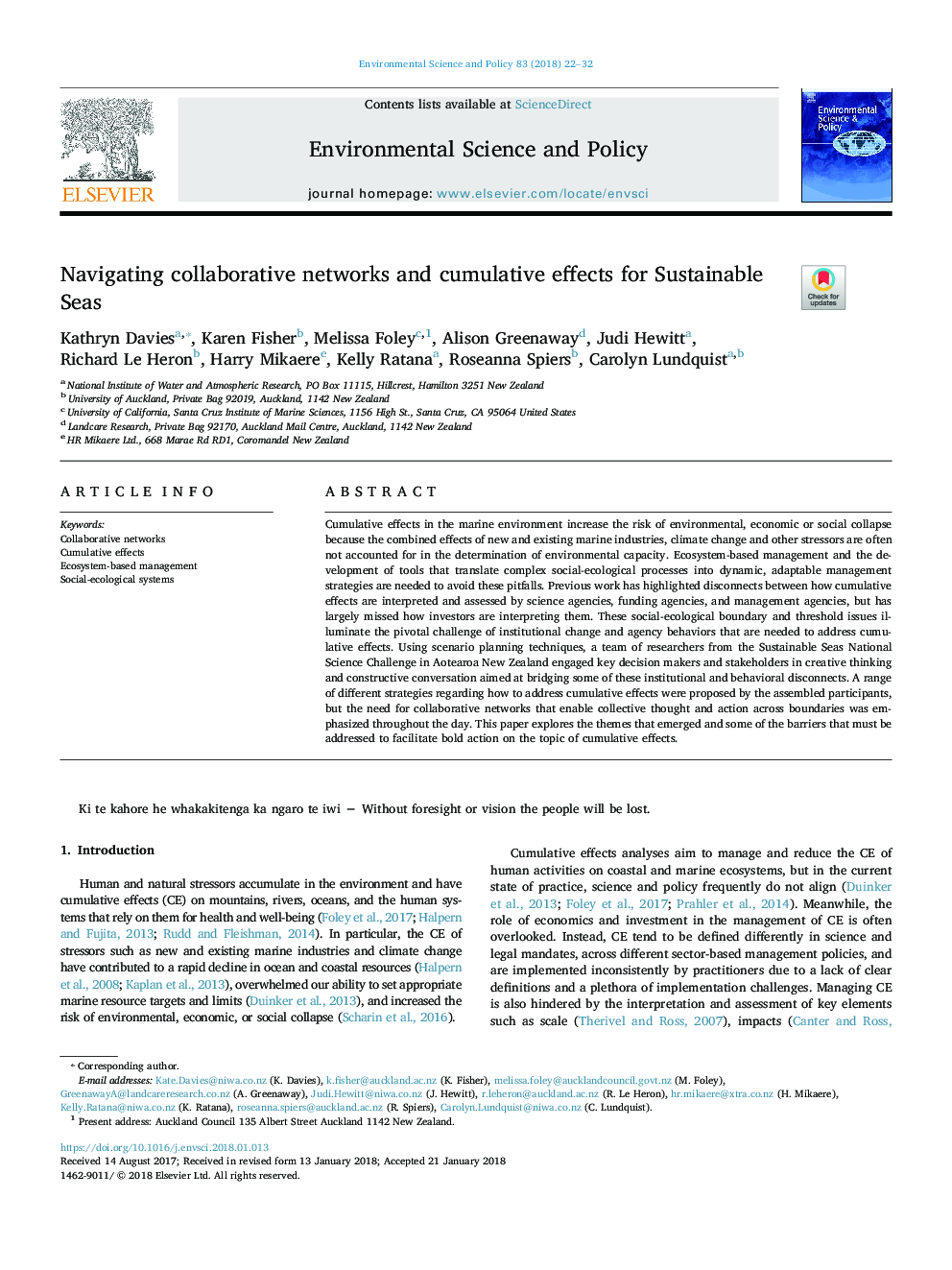| Article ID | Journal | Published Year | Pages | File Type |
|---|---|---|---|---|
| 7466105 | Environmental Science & Policy | 2018 | 11 Pages |
Abstract
Cumulative effects in the marine environment increase the risk of environmental, economic or social collapse because the combined effects of new and existing marine industries, climate change and other stressors are often not accounted for in the determination of environmental capacity. Ecosystem-based management and the development of tools that translate complex social-ecological processes into dynamic, adaptable management strategies are needed to avoid these pitfalls. Previous work has highlighted disconnects between how cumulative effects are interpreted and assessed by science agencies, funding agencies, and management agencies, but has largely missed how investors are interpreting them. These social-ecological boundary and threshold issues illuminate the pivotal challenge of institutional change and agency behaviors that are needed to address cumulative effects. Using scenario planning techniques, a team of researchers from the Sustainable Seas National Science Challenge in Aotearoa New Zealand engaged key decision makers and stakeholders in creative thinking and constructive conversation aimed at bridging some of these institutional and behavioral disconnects. A range of different strategies regarding how to address cumulative effects were proposed by the assembled participants, but the need for collaborative networks that enable collective thought and action across boundaries was emphasized throughout the day. This paper explores the themes that emerged and some of the barriers that must be addressed to facilitate bold action on the topic of cumulative effects.
Keywords
Related Topics
Physical Sciences and Engineering
Energy
Renewable Energy, Sustainability and the Environment
Authors
Kathryn Davies, Karen Fisher, Melissa Foley, Alison Greenaway, Judi Hewitt, Richard Le Heron, Harry Mikaere, Kelly Ratana, Roseanna Spiers, Carolyn Lundquist,
